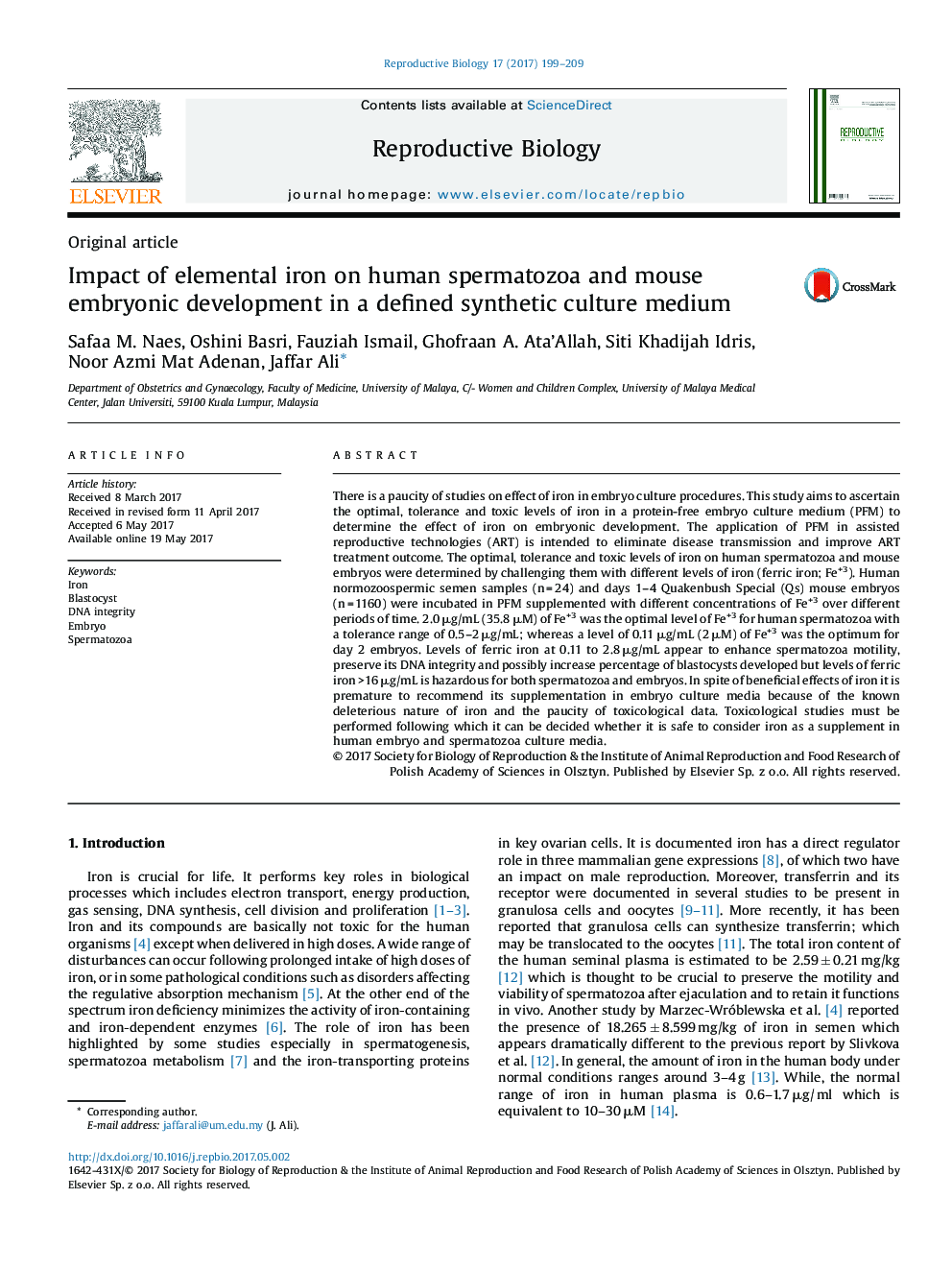| کد مقاله | کد نشریه | سال انتشار | مقاله انگلیسی | نسخه تمام متن |
|---|---|---|---|---|
| 5519015 | 1544060 | 2017 | 11 صفحه PDF | دانلود رایگان |
- The effect of graded amounts ferric iron on normospermic human spermatozoa and Swiss out bred mouse embryos were investigated using a synthetic chemically defined culture medium.
- A dose-related effect of iron on both sperm and mice embryos were noted.
- Lower doses of iron were beneficial to both spermatozoa and embryos but iron toxicity was felt and increased with dosage.
There is a paucity of studies on effect of iron in embryo culture procedures. This study aims to ascertain the optimal, tolerance and toxic levels of iron in a protein-free embryo culture medium (PFM) to determine the effect of iron on embryonic development. The application of PFM in assisted reproductive technologies (ART) is intended to eliminate disease transmission and improve ART treatment outcome. The optimal, tolerance and toxic levels of iron on human spermatozoa and mouse embryos were determined by challenging them with different levels of iron (ferric iron; Fe+3). Human normozoospermic semen samples (n = 24) and days 1-4 Quakenbush Special (Qs) mouse embryos (n = 1160) were incubated in PFM supplemented with different concentrations of Fe+3 over different periods of time. 2.0 μg/mL (35.8 μM) of Fe+3 was the optimal level of Fe+3 for human spermatozoa with a tolerance range of 0.5-2 μg/mL; whereas a level of 0.11 μg/mL (2 μM) of Fe+3 was the optimum for day 2 embryos. Levels of ferric iron at 0.11 to 2.8 μg/mL appear to enhance spermatozoa motility, preserve its DNA integrity and possibly increase percentage of blastocysts developed but levels of ferric iron >16 μg/mL is hazardous for both spermatozoa and embryos. In spite of beneficial effects of iron it is premature to recommend its supplementation in embryo culture media because of the known deleterious nature of iron and the paucity of toxicological data. Toxicological studies must be performed following which it can be decided whether it is safe to consider iron as a supplement in human embryo and spermatozoa culture media.
Journal: Reproductive Biology - Volume 17, Issue 3, September 2017, Pages 199-209
